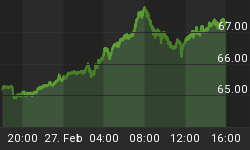Last week, major banks began announcing that they would halt foreclosures for at least three weeks. Clearly the banks are playing a game of chess with the government because a rational bank would seize collateral of a loan that stops paying principal and interest.
The banks' three week forbearance period is designed to give the government time to devise a plan to help homeowners. However, the banks' real goal is not to give the government time to come up with a plan, but to force the government to come up with a plan that would benefit not the homeowners but instead the banks.
The banks know what they are doing. A bank has two responsibilities when it comes to a loan that it has made. The first and most important goal is to collect principal and interest. If principal and interest payments are not collected the bank must foreclose on the property to collect some value against the loan. If the bank does not foreclose, then other borrowers of the bank will learn of this and will also stop making payments to the bank. (A bank can also restructure a loan on its own in more normal economic times, however, in a severe recession/depression the banks know that most restructured loans/mortgages will fall right back into delinquency status).
In addition to the moral hazard of failing to foreclose on delinquent homeowners, halting foreclosures by the banks will cause mortgage backed securities (MBS) prices to fall further if a government bail-out plan is not finalized. If investors are uncertain about how long they will have to wait to recover any value from the collateral backing mortgages, there is no reason for them not to sell MBS down further. This, in turn, will impair bank and insurance capital so severely that the government will be forced into some plan to restructure mortgages directly for homeowners. If the plan is anything like all other government plans, it will not be well thought out or effective.
The banks also recognize that the government must act before the conclusion of the foreclosure forbearance period in order to ensure that there is no negative press about the resumption in foreclosures. If that were to occur, it would make the President and Democrats appear that they are not trying to help the people they allege they are trying to save. However, restructuring mortgages (ie. giving away even more money) to the least credit worthy people of our society is not a solution.
It seems pretty clear at this point that the banks have effectively trapped the government into taking them out of bad mortgages. This course of action by the US government is similar to what occurred in the Weimar Republic preceding its hyperinflationary spiral. The following excerpt from the book Economics of Inflation by Costantino Bresciani-Turroni describes the time period:
"This is just what happened in Germany. There is no doubt that the paper inflation would not have assumed such vast proportions if it had not been favored in many ways by the people who drew a large profit from it. It is clear from the discussions held in 1922 and 1923 in the 'Economic Council of the Reich,' that representatives of those classes used their influence on the Government to impede the reform of the public finances and to sabotage all proposals for the stabilization of the German exchange, which they only accepted when, at last, an economic catastrophe threatened Germany and it was evident that the consequences of the inflation would rebound against their authors."
Modern day "classes" influencing the Government are the banks and insurance companies that have been lobbying for bailout after bailout. The game of chess that the banks are playing with the Government is forcing the US down the same path of bailouts and destructive monetary policy as 1920's Germany. And similar to Germany, the game will end in terrible destruction not only for the banks in the United States, but also for the entire country.















